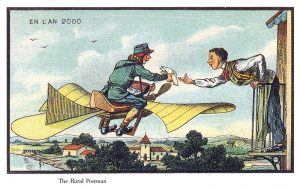Not Just Another Email
 My first legal writing assignment in law school was an e-mail memo. For the first few weeks or so of my introductory legal writing course, our professor guided my classmates and me through thorough examination and crafting of effective e-mail memos. At the time, I found the exercise mundane—lacking the excitement and wonder of a full memo or brief. It seemed more like diet legal writing that was focused on beginners. Boy was I wrong.
My first legal writing assignment in law school was an e-mail memo. For the first few weeks or so of my introductory legal writing course, our professor guided my classmates and me through thorough examination and crafting of effective e-mail memos. At the time, I found the exercise mundane—lacking the excitement and wonder of a full memo or brief. It seemed more like diet legal writing that was focused on beginners. Boy was I wrong.
As a new associate, I spend much of my time researching developments in the law. One effective way to communicate and document my research and conclusions is to submit an answer by e-mail. Looking back now, I wish that I had had the principles we learned in that legal writing class in mind when submitting my first such e-mail memo to a more senior associate at our firm.
My first version of an e-mail memo in practice was a disaster. The question was simple: Whether there had been any new case or other law on a narrow issue. The answer, as I saw it based on my research, was just two sentences of text. So, I wrote down my answer in a colloquial e-mail, fired it off, and moved on to another matter. Oops.
Shortly thereafter, the senior associate that I sent that e-mail to walked into my office and politely asked me whether I had a copy of The Bluebook. Then it all came back: Identify the question; give an answer; justify and support the answer by stating what the law is and how it would likely apply to these facts; consider counter answers where applicable; offer further discussion; check your cites. Needless to say, my first e-mail memo in practice did not follow this blueprint.
Now, my experience might not be everyone’s, but if I could add to the heap of advice law students receive, it would be to refresh that recollection of how to write a superb e-mail memo before pressing the send button as a new associate in practice. E-mail memos are not mere introductions to legal writing.

